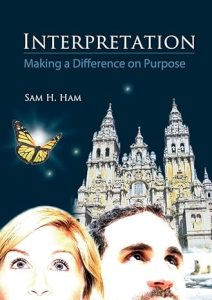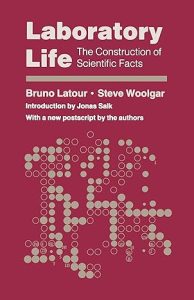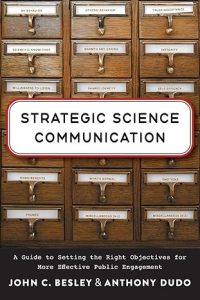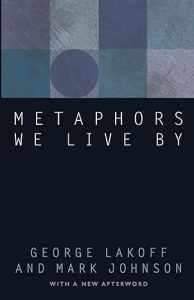To further support EMBL Programme and its mission, librarians responded to the suggestion of EMBL Science Education and Public Engagement Office (SEPE) and established the new special collection on topics related to Public Engagement in scientific research, expanding already existing resources in outreach and presentation of scientific research.
As explained by the EMBL SEPE Office, Public Engagement with science is a fundamental necessity for the progress of society. It promotes scientific literacy, informed decision-making, and ethical considerations, while also inspiring future generations to pursue scientific endeavours. It goes beyond academic institutions and research labs and it is the bridge that connects the scientific community to the rest of the world.
Public Engagement is not only recognized by EMBL, but actively supported. As stated in Chapter 15 of EMBL Programme 2022-2026, “The goal of public engagement and outreach activity by EMBL is to ensure wider awareness and application of EMBL’s knowledge by general scientific audiences, policymakers, and the public, as well as more informed research choices by EMBL staff and the wider research community.”
Our colleague Michele from SEPE Office kindly suggested the new titles, and more information on public engagement and outreach activities can be found on SEPE Office page.
New titles

By Paul Feyerabend
In this wide-ranging and accessible book Feyerabend challenges some modern myths about science, including the myth that ‘science is successful’. He argues that some very basic assumptions about science are simply false and that substantial parts of scientific ideology were created on the basis of superficial generalizations that led to absurd misconceptions about the nature of human life.

By Sam H. Ham
In the new edition of the international bestseller Environmental Interpretation, Sam H. Ham draws on recent advances in communication research to unveil a fresh and invigorating perspective that will lead interpreters to new and insightful pathways for making a difference on purpose through their work.

Edited by David J. Bennett and Richard C. Jennings
Despite the ever-growing demands of the public, policy-makers and the media, many scientists still find it difficult to successfully explain and publicise their activities or to understand and respond to people’s hopes and concerns about their work. Bringing together experienced and successful science communicators from across the academic, commercial and media worlds, this practical guide fills this gap to provide a one-stop resource covering science communication in its many different forms.

By Bruno Latour and Steve Woolgar
This highly original work presents laboratory science in a deliberately skeptical way: as an anthropological approach to the culture of the scientist. Drawing on recent work in literary criticism, the authors study how the social world of the laboratory produces papers and other “texts,” and how the scientific vision of reality becomes that set of statements considered, for the time being, too expensive to change.

By John C. Besley and Anthony Dudo
Strategic Science Communication is the first book to use social science to help scientists and professional science communicators become more evidence-based. Besley and Dudo draw on insightful research into the science of science communication to provide readers with an opportunity to think more deeply about how to make communication choices.

By George Lakoff and Mark Johnson
The now-classic Metaphors We Live By changed our understanding of metaphor and its role in language and the mind. Metaphor, the authors explain, is a fundamental mechanism of mind, one that allows us to use what we know about our physical and social experience to provide understanding of countless other subjects.

By Richard P. Feynman, as told to Ralph Leighton
In this lively work that “can shatter the stereotype of the stuffy scientist” (Detroit Free Press), Feynman recounts his experiences trading ideas on atomic physics with Einstein and cracking the uncrackable safes guarding the most deeply held nuclear secrets–and much more of an eyebrow-raising nature.






